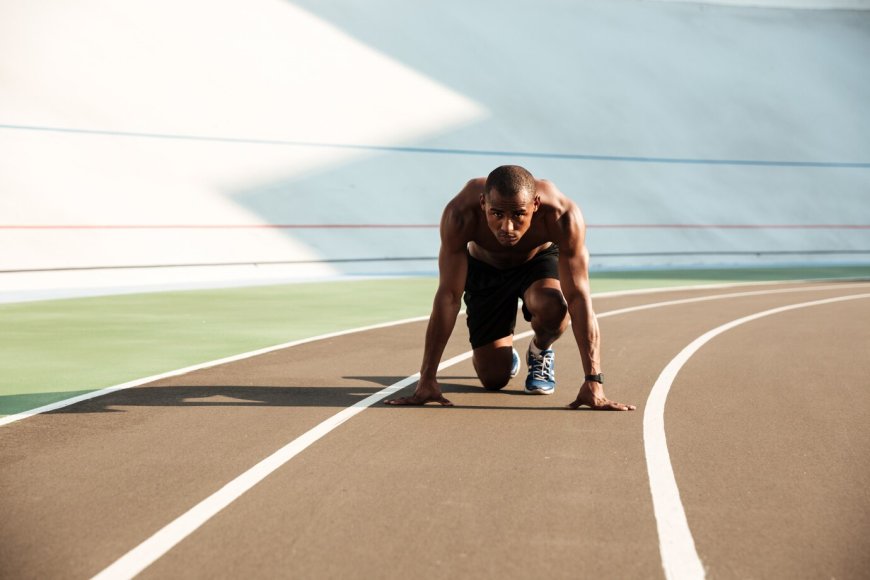Athletic Training VS Bodybuilding: How They Differ
What’s your goal when you work out? Do you want to build muscles, or you need to raise your strength? Wholesale athletic wear is a must-have for both exercises.

At first glance, you do not find much of a distinction between athletic training and bodybuilding. Both intend to improve physical fitness, appear well, and compete against others. But it doesn't mean that they are the same. The exercise and practice for both are quite different. If you want to know how they are different from each other, have a look at this article.
Key Differences Between Athletic Training and Bodybuilding
Bodybuilding: It's All About Size
Bodybuilders use weights not to gain functional strength, but to bulk up their muscles. They will gain strength along the road as a result of the training rather than the emphasis.
Muscles that develop in size have more energy, which allows them to exert more force. However, bulky muscle energy is not the same as true strength. For this reason, bodybuilders are often weaker than they appear.
Athletic Training: It's All About Strength
Athletic training has only one goal. That is to improve the amount of force your muscles can generate when they lift heavy items. Muscle size and shape are unimportant as long as they can produce maximal force when lifting.
The average strength trainee, unlike bodybuilders, does not have a flawlessly shaped physique. They have a greater body fat percentage. The body form is blocky and substantial rather than sleek and slimline. When it comes to using those muscles, they have far more functional strength and endurance than a bodybuilder.
Bodybuilding vs. Athletic Training: The Exercises
Athletic training focuses on complex exercises that utilize many muscle groups. They are known as multi-joint exercises. This allows you to use bigger weights and improve functional strength. They also teach your central nervous system to coordinate your body to complete more complex lifts with maximum force. These are all important aspects of power lift and weight lift.
Examples of common athletic activities to improve strength performance are:
- Squats on the back
- Snatch
- Deadlift
- Bench press
- The overhead press
Bodybuilding, on the other hand, focuses more on specific muscles. A bodybuilder's primary goal is to increase muscle. But he or she may want to achieve a balanced physique and eliminate weak areas. Bodybuilders employ compound lifts like the ones mentioned above. In addition, they include isolation exercises in their resistance exercise plan to a higher extent. Such as:
- Leg stretches
- Biceps Curls
- Hamstrings curls
- Lateral raises
Athletes spend most of their time on compound exercises with heavy weights and low reps. They then follow some isolation work if time and recovery allow.
Contrary to this, bodybuilders combine compound and isolation exercises to produce total-body muscular hypertrophy. That helps to hit all muscle groups with lighter loads.
Risk of Injury
Every time you risk harm when you push your body. Most sports demand greater physical involvement. So, they have a high risk of injury. But if players are dressed in wholesale athletic wear the risk of injury decreases.
Strength sports, such as bodybuilding, strongman, and Cross-Fit, have lower injury rates than most team sports. Bodybuilding is the safest of these, with less than one accident per lifter per year.
Athletic exercises necessitate the use of higher weights and greater force. That is sometimes too much for your muscles and connective tissues to handle. That results in increasing the risk of injury. Bodybuilding, on the other hand, entails exercises with low weights which aids to control the movement. As a result, there is a slight risk of damage.
Speed of Repetitions
Athletes give focus to speed and momentum. The speed and intensity of their workouts steadily increase until they reach an explosive climax. They advance by sheer resistance and leg strength. As a result, their reps are one to two seconds long. As time goes on, their focus to increase the weight on the bar reduces. Whereas, they increase attention to press the weight faster and faster. As they get experience, these two factors improve, and the athlete can practice for extended lengths of time.
On the other hand, bodybuilding is a more methodical, slower process that takes thought and planning. So, it is usual for a bodybuilder to pace himself differently and have each repeat last five seconds or more. This slower strategy has several advantages. It gives the muscles time to stretch while under strain. As well as a proper warm up workout before exercise reduces the chance of muscle breakdown or rupture.
Fatigue
Bodybuilders Suffer from PNS Fatigue
This is related to exercise and exhaustion. Bodybuilders’ workout causes more weariness in the peripheral nervous system than the central nervous system. This indicates that the brain can still transmit impulses. But the impulses are unable to induce the muscle to contract due to built-up exhaustion.
Athletes Suffer from CNS Fatigue
Athletes' training will exhaust the Central Nervous System way more than the Peripheral Nervous System. This is critical for athletes because the majority of change for strength and power originate from the CNS. When the CNS is fatigued, the brain is unable to send effective electrical impulses to the muscles. Those signals are necessary for coordinated contraction.
Conclusion
Although there is some overlap between these two types of workouts, they differ in goal and function. Athletes focus more on speed and endurance, whereas bodybuilders need muscular growth and shape. Wholesale athletic wear helps to get both. Athletic exercise and bodybuilding are two components of a well-rounded practice regimen. They are symbiotic—both require each other. You need an equal amount of each for the greatest results. Neither bodybuilders nor strength athletes have a superior workout session. Each one helps to meet the aims and requirements of their particular sports. You just need to pick the right one as per your goals and success will be yours.
What's Your Reaction?


















